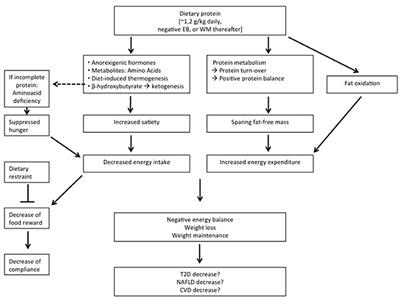REVIEW
Published on 06 Aug 2018
Dietary Protein and Energy Balance in Relation to Obesity and Co-morbidities

doi 10.3389/fendo.2018.00443
- 53,658 views
- 110 citations
10k
Total downloads
54k
Total views and downloads
REVIEW
Published on 06 Aug 2018

MINI REVIEW
Published on 22 Jun 2018

ORIGINAL RESEARCH
Published on 14 Jun 2018

ORIGINAL RESEARCH
Published on 10 Apr 2018

